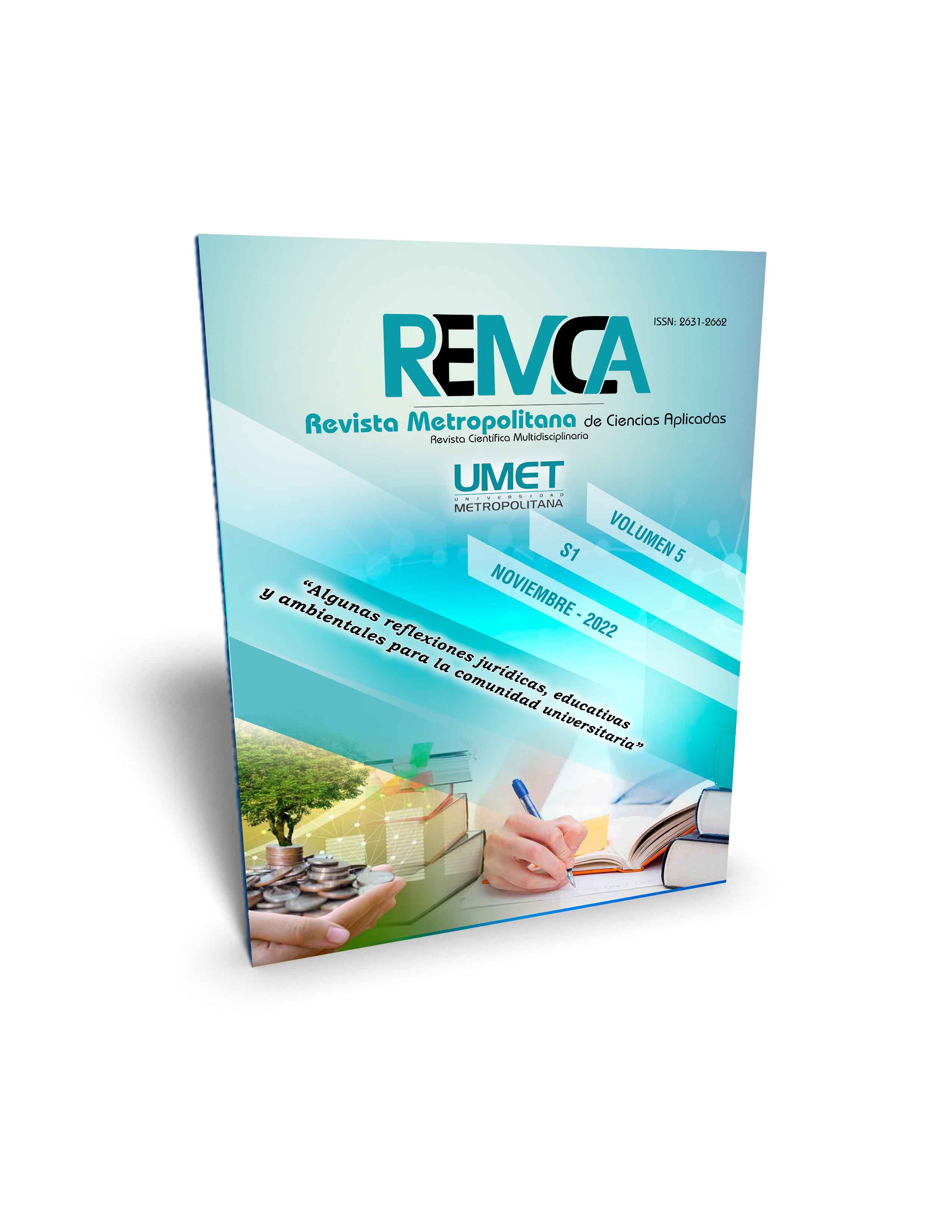The principle of fiscal objectivity in the pre-procedural stage
DOI:
https://doi.org/10.62452/7830zk35Keywords:
Principio de objetividad, debido proceso, actuación fiscal, tutela judicial efectivaAbstract
The principle of fiscal objectivity in the pre-trial stage constitutes an optimization mandate that is of the utmost importance for the criminal process, as it guarantees compliance with the rights of the person under investigation and of the victims. The modern accusatory system requires the prosecutor to act impartially, objectively, adjusted to the reality of the elements obtained during the preliminary investigation, and imposes the obligation to incorporate into the process both the elements against the investigated party and those that are in his favor. In addition to the fact that ethical behavior and a sense of justice are required of the prosecutor. The objective of this paper is to analyze the role played by compliance with the principle of objectivity and its importance, in charge of the prosecutor in the pre-trial stage in Ecuador. Methods of the Social Sciences are used, such as the historical-logical, the analysis-synthesis, or particularly legal, such as the exegetical; in terms of techniques, documentary review. As results, a theoretical systematization is obtained about the principle of fiscal objectivity in the Ecuadorian pre-procedural stage, as well as practical manifestations in Ecuador.
Downloads
References
Alvarado, J. E. (2017). Investigación previa. https://derechoecuador.com/investigacion-previa/
Cáceres Pérez, F. R. (2017). Infracciones penales y el principio de objetividad. (Proyecto de titulación). Universidad Técnica de Ambato.
Calle Arias, X. V., & Pinzón Jaramillo , J. P. (2016). La falta de aplicación del principio de objetividad dentro de las actuaciones que se dan en la fiscalía. Universidad Técnica de Machala. http://repositorio.utmachala.edu.ec/bitstream/48000/8147/1/TTUACS_DE27.pdf
Donato, M. (2021). ¿Qué es la objetividad y subjetividad en filosofia? https://organosdepalencia.com/biblioteca/articulo/read/259046-que-es-la-objetividad-y-subjetividad-en-filosofia
Durán Chávez, C., & Henríquez Jiménez, C. D. (2021). Principio de objetividad previsto en el código orgánico integral penal. Relación con el debido proceso. Revista Sociedad & Tecnología, 1(4), 159-173.
Ecuador. Asamblea Nacional Constituyente. (2008). Constitución de la República del Ecuador. Registro Oficial No. 449. https://www.asambleanacional.gob.ec/sites/default/files/documents/old/constitucion_de_bolsillo.pdf
Ecuador. Asamblea Nacional. (2014). Código Orgánico Integral Penal. Registro Oficial Suplemento 180. https://siteal.iiep.unesco.org/sites/default/files/sit_accion_files/siteal_ecuador_0217.pdf
Ecuador. Fiscalía General del Estado. (2014). Guía para Actuaciones del Fiscal dentro del Código Orgánico Integral Penal. https://www.fiscalia.gob.ec/pdf/escuela-fiscales/GUIA-COIP.pdf
Espinosa Ludeña, L. Y. (9 de noviembre de 2019). La notificación, un acto de comunicación base del respeto del debido proceso. (Tesis de maestría). Universidad Católica Santiago de Guayaquil.
Fausto Santiago, T. C. (2011). La investigación preprocesal. https://derechoecuador.com/la-investigacion-preprocesal/
Fuentes Aguila, M. R., & Fernández Romo, R. M. (2015). La prohibición de reformatio in peius en el juicio de reenvío: Un análisis desde la casación penal cubana. Editorial Universitaria.
Massón, A. (2018). Investigación Previa. Los Andes. Periódico Regional. https://www.diariolosandes.com.ec/investigacion-previa/
Meléndez Carballido, R., Carrión León, K. E., Alfaro Matos, M., & Paronyan, H. (2022). Tutela judicial efectiva y principio de objetividad de la investigación fiscal como garantía de su cumplimiento. Dilemas contemporáneos: educación política y valortes, 9(Especial 1), 78-90.
Mendoza-Peñafiel, W., & Zamora-Vázquez, A. F. (28 de Enero de 2022). Alcance del dictamen abstentivo fiscal en la legislación ecuatoriana frente al derecho de impugnación. Dominio de la Ciencias , 8(1), 1156-1164.
Pazmiño Lizano, K. G. (2021). El principio de objetividad aplicado al trámite del procedimiento abreviado. (Trabajo de titulación). Pontificia Universidad Católica del Ecuador.
Roxin, C. (2006). Derecho Procesal Penal, Traducción de la 25ª edición alemana de Gabriela Cordoba y Daniel Pastor, revisada por Julio Maier. Editores del Puerto.
Tójar, J. (2012). Investigacion cualitativa, comprender y actuar. La Muralla.
Vaca Nieto, P. R. (2009). La objetividad del fiscal en el Sistema Penal Acusatorio. (Tesis de maestría). Universidad Andina Simón Bolívar.
Vargas Viancos, J. E. (2008). La nueva generación de reformas procesales en Latinoamérica. Revista Latinoamericana de Seguridad Ciudadana, (3), 33-47.
Downloads
Published
Issue
Section
License
Copyright (c) 2022 Xavier Vicente Calle Arias (Autor/a)

This work is licensed under a Creative Commons Attribution-NonCommercial-ShareAlike 4.0 International License.
Authors who publish in Revista Metropolitana de Ciencias Aplicadas (REMCA), agree to the following terms:
1. Copyright
Authors retain unrestricted copyright to their work. Authors grant the journal the right of first publication. To this end, they assign the journal non-exclusive exploitation rights (reproduction, distribution, public communication, and transformation). Authors may enter into additional agreements for the non-exclusive distribution of the version of the work published in the journal, provided that acknowledgment of its initial publication in this journal is given.
© The authors.
2. License
The articles are published in the journal under the Creative Commons Attribution-NonCommercial-ShareAlike 4.0 International License (CC BY-NC-SA 4.0). The terms can be found at: https://creativecommons.org/licenses/by-nc-sa/4.0/deed.en
This license allows:
- Sharing: Copying and redistributing the material in any medium or format.
- Adapting: Remixing, transforming, and building upon the material.
Under the following terms:
- Attribution: You must give appropriate credit, provide a link to the license, and indicate if any changes were made. You may do this in any reasonable manner, but not in any way that suggests the licensor endorses or sponsors your use.
- NonCommercial: You may not use the material for commercial purposes.
- ShareAlike: If you remix, transform, or build upon the material, you must distribute your creation under the same license as the original work.
There are no additional restrictions. You may not apply legal terms or technological measures that legally restrict others from doing anything the license permits.




